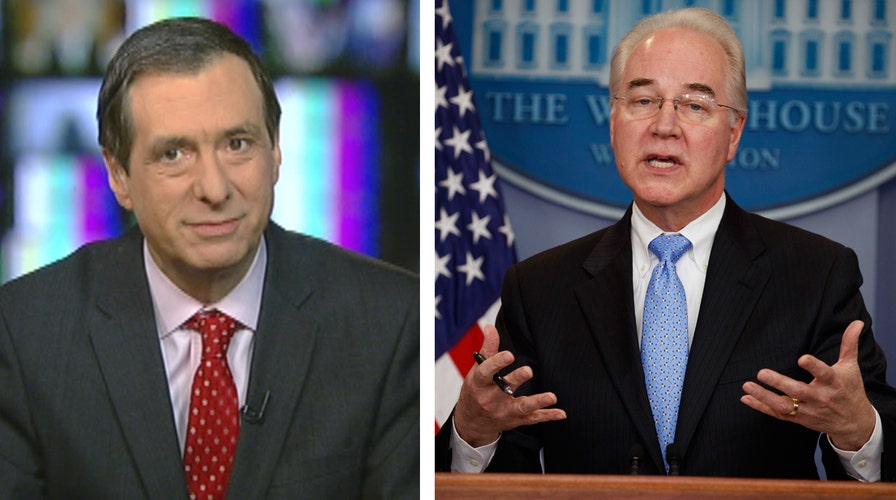Kurtz: ObamaCare gone or ObamaCare lite?
'MediaBuzz' host Howard Kurtz weighs in on the Republican rollout of their health care alternative
As Republicans debate whether their health insurance replacement plan is viable or just ObamaCare Lite, one thing is clear:
Barack Obama moved the goalposts.
What I mean is that the GOP is having to make compromises because the existing program, for all its flaws, is in purely political terms very hard to unravel.
What’s more, President Trump said during the campaign that he liked parts of ObamaCare, singling out the ban on refusing people with preexisting conditions and allowing parents to keep their kids on their policies until age 26. So the GOP is trying to navigate a narrow path that is far more treacherous than six years of just calling for repeal.
Ronald Reagan also moved the goalposts. He transformed the national debate about the size of government to the point that Bill Clinton declared that the era of big government was over—and passed a welfare-reform bill with Newt Gingrich’s Republicans.
LBJ moved the goalposts as well. More than half a century after he rammed Medicare and Medicaid through Congress, there are plenty of attempts to rein in those programs but no one talks about abolishing them.
None of this was a secret when Obama rammed his health bill through in 2010 on a party-line vote. Everyone knew that once a major entitlement program is passed, it’s extraordinarily difficult to abolish.
So as partisans on both sides debate the House GOP bill, they are, in effect, doing so on Obama’s turf.
Republicans realized it was political suicide to push any bill that would cause 20 million people to lose their coverage. And they are supporting another Obama reform of preventing insurance companies from imposing lifetime caps on benefits.
At the same time, they have fertile ground because of all the people who, despite Obama’s promises, lost their coverage or had to pay dramatically higher premiums.
Paul Ryan’s challenge is that he can lose only 19 Republican votes, and the party’s most conservative wing is unhappy with the bill that has emerged--as several of them made clear at a news conference yesterday. Several conservative groups are also vowing to fight the bill.
The measure scraps the hated individual mandate, along with the employer mandate. But people who let their insurance lapse would face a 30 percent rate hike to get back in, which is a pretty strong incentive to keep their policies.
The bill would do away with the federal subsidies to help people buy insurance and substitute tax credits instead, which start to phase out for individuals earning more than $75,000.
The bill would also roll back Obama’s Medicaid expansion and instead give states grants that could be used to help residents pay for health care, though perhaps at lower levels.
So how can the GOP leadership call it “ObamaCare Gone” and Rand Paul call it “ObamaCare Lite”? If it all seems a bit murky, keep in mind that Republicans can’t say how much the bill is going to cost or how many people might lose coverage.
Plus, there are such hot-button issues as defunding Planned Parenthood and cutting taxes for insurance executives who make more than $500,000.
However all this is hashed out—and I don’t underestimate Trump’s ability to make a deal—he will be fixing his predecessor’s law, not throwing it out.





